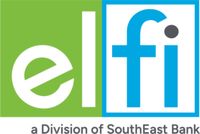Banks that refinance student loans

Key takeaways
- A few banks are still offering student loan refinancing, but you’ll generally find more online options from technology startups.
- Refinancing your student loans can land you a lower interest rate and more affordable monthly payments, but it may not be worthwhile for federal loans as you’ll lose valuable benefits.
- If you decide to move forward with refinancing, explore what multiple lenders have to offer and compare loan quotes to find the best deal.
The decision to refinance your student loans involves applying for a new loan to repay your current student loans, but before settling on a lender, it’s important to shop around and compare multiple offers, including banks and credit unions.
Banks can be a good choice if you already have accounts with the bank. You may get a discount on your loan interest rate. Opting for a local bank can also provide more personalized service.
5 Banks that refinance student loans
If you’re considering refinancing your student loans, here are five banks to help you start your search.

Citizens Bank
-
Citizens Bank offers loans ranging from $10,000 to $750,000 (the limit is $300,000 for bachelor’s degrees and below). Repayment options are five, seven, 10, 15 and 20 years. The bank’s interest rates are competitive, and you can choose from fixed and variable rates. In addition to an autopay discount, Citizens Bank offers a 0.25 percent interest rate discount if you or your cosigner have a qualifying bank account with the lender when you apply.
Citizens Bank doesn’t disclose a minimum credit score. You’ll also need to have completed a bachelor’s degree or higher, have at least $10,000 in student loan debt and meet citizenship requirements.

SoFi
-
SoFi started strictly as a student loan refinance company but received approval from federal regulators in early 2022 to become a national bank. The online bank offers loans as low as $5,000 with no ceiling. Repayment terms are five, seven, 10, 15 or 20 years.
The lender’s interest rates, both fixed and variable, are competitive. What sets SoFi apart from other lenders is its member benefits. You’ll get financial planning, referral bonuses, a home loan discount, 20 percent off an estate plan and more.
You can refinance with SoFi if you’ve graduated with at least an associate degree, but the lender doesn’t publicly disclose any minimum requirements for credit or income. You are also not eligible if your loans were taken out for bar study or a residency.

Laurel Road
-
Laurel Road is an online banking brand for KeyBank, with student refinance loans ranging from $5,000 to your total outstanding loan balance. Repayment terms are five, seven, 10, 15 and 20 years.
The lender’s interest rates are competitive, and you can qualify for a discount if you have a checking account with Laurel Road and meet direct deposit and savings balance requirements. This is in addition to the 0.25 percent autopay discount.
You need to have an associate degree or higher to qualify. With an associate degree, you must have earned a degree in health care.

ELFI
-
Education Loan Finance (ELFI) is the student loan refinance division of SouthEast Bank. The minimum loan amount is a bit high at $10,000, with the limit varying based on eligibility. Repayment terms include five, seven, 10, 15 and 20 years, though parents are limited to a repayment period of 10 years. The lender offers competitive fixed and variable interest rates.
ELFI does have some downsides – namely, there’s no cosigner release program and a bachelor’s degree is required to refinance. On the other hand, ELFI is more transparent than other lenders about its eligibility criteria. To qualify, you need a minimum income of $35,000, a minimum credit score of 680 and a minimum credit history of 36 months.
How to refinance student loans with a bank
To refinance student loans with a bank, you’ll go through a similar process as you would with an online lender:
- Shop around:You’ll start by comparing interest rates from multiple companies, which should include banks and other lenders.
- Prequalify: Most student loan refinance companies allow you to get a rate quote with a soft credit check, making the comparison process easy and risk-free.
- Apply online: Once you decide on a lender, you’ll apply directly through its website. You’ll need to provide information about yourself, your school and your student loans. Once you submit your application, the lender will run a credit check and ask you to provide some documentation, such as pay stubs and a copy of your driver’s license.
- Don’t immediately drop payments on the old loan: The lender will pay off your existing loans directly, but you’ll need to continue to make payments until that’s been confirmed.
5 Banks that don’t refinance student loans
Most banks don’t offer student loan refinancing, which include:
- U.S. Bank: This bank ended its student loan program entirely.
- Chase Bank: Chase student loans were sold off to Navient.
- Sallie Mae: Sallie Mae operates under Sallie Mae Bank and does not offer student loan refinancing.
- Ascent: Ascent focuses on student loans for undergraduate and graduate degrees, along with career training like boot camps. While it finances through a couple of banks, it doesn’t offer student loan refinancing.
- Abe: While Abe finances through DR Bank, it does not offer refinancing for student loans.
Is there a difference between refinancing with a bank or another lender?
When it comes to refinancing your student loans, the options tend to be limited in terms of the banks you can use. Only a handful of banks offer student loan refinancing. You may also be able to find an online student loan lender to refinance your loans.
That said, compare rates, terms and other conditions between banks and other lenders. You can make the best decision for your student loans and determine whether it makes sense to refinance.
Why few banks refinance student loans
Student loan expert Mark Kantrowitz says that many large banks no longer make or refinance private student loans because it is a small segment of their business. It also comes with additional regulations, such as private student loan disclosure requirements.
Kantrowitz notes that many large banks quit private lending and student loan refinancing after the FFEL federal student loan program ended in 2010. This loan program had a much larger loan volume and guaranteed profits, so its end meant there was little incentive for big banks to offer student loan refinancing products to such a limited market.
Some larger banks see auto lending as an easier way to reach recent college graduates, he says. Other banks with a large online presence may choose to focus on financial products with a much broader appeal, such as credit cards or personal loans.
Bottom line
While there can be benefits to refinancing student loans, this step should be approached carefully. Refinancing federal student loans with a private lender means losing access to benefits like income-driven repayment and forbearance.
If you refinance, obtain offers from multiple lenders, including banks or credit unions. If you have an existing relationship with a bank, you may be able to get a better deal on your student loan refinance.
Frequently asked questions
Why we ask for feedback Your feedback helps us improve our content and services. It takes less than a minute to complete.
Your responses are anonymous and will only be used for improving our website.






